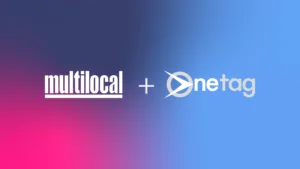Last week Google announced the start of the process to overhaul ad tracking on Android phones. Currently, Android devices are each assigned a unique identifier known as an “advertising ID,” which is used to build a profile that can be used to target in-app ads. But when the new changes are implemented, the advertising ID will be phased out in favour of alternative targeting mechanisms that Google says will be more favourable to user privacy.
NDA asked some of the clients at Bluestripe Communications for their opinions on the news.
Travis Clinger, SVP, Addressability and Ecosystem at LiveRamp
“These updates from Google further emphasize the tremendous value for brands and publishers to continue establishing first-party relationships with their customers through trusted and authenticated value exchanges. Marketers benefit from the highest-fidelity first-party data connections and will be better prepared for the future as identifiers continue to evolve. Publishers can take back control over their relationships with their users, ensuring they have more paths to monetization and sustainable revenue streams while giving users full control and transparency.”
“Marketers should continue their transition away from third-party cookies and device-based identifiers, and complete their migration to buying and measuring on people-based, privacy-focused identifiers. Similarly, publishers should connect their authenticated inventory, across channels such as display, mobile and CTV, to marketer demand via solutions like LiveRamp’s Authenticated Traffic Solution.”
Julien Hirth, Co-founder and GM, Scibids
“With mobile playing such an important role in the digital marketing landscape, Google’s announcement that its Privacy Sandbox is now being applied to Android is an important update for advertisers. With its Privacy Sandbox, Google is seeking to satiate the demands of privacy-conscious consumers and simultaneously balance the requirements of regulators with the financial needs of advertisers. A massive engineering challenge given the numerous use cases attached to cookies and shared user ids across the industry but also a significant step toward a privacy-friendly future for the industry! Still, a lot of open questions to be solved but we can appreciate Chrome’s willingness to collaborate with the industry in order to find the best trade-off between user privacy and marketing performance.”
Julie Rubash, Chief Privacy Counsel, Sourcepoint
“Google’s recent announcement creates a divide in priorities. On the one hand, the lack of cross-app tracking and a shift in focus to group interests is a huge win for privacy, but on the other, the mobile app industry, which is heavily reliant on targeted advertising, will need to adapt quickly. In terms of attribution, a large part of its effectiveness will rely on the amount of relevant data available from app users when accessing reports, which from this current announcement, looks to be limited.
“In its Privacy Sandbox for Android, Google appears to be limiting the amount of conversion data available in its reporting to improve privacy, which could make it harder for developers to analyze campaigns and user activity. Ultimately, modern technology that doesn’t rely on the same level of user data will need to be implemented, but this has to be seen as a positive for consumer privacy overall.”
Łukasz Włodarczyk, VP of Programmatic Ecosystem Growth & Innovation, RTB House
“First of all, we are impressed by the quality of communication from Google in regards to Privacy Sandbox for Android in comparison to the previous announcements. This time round Google has released multiple overviews, pages for developers, videos and there has been coordinated communication efforts from Google’s points of contact for ad-tech players.
“As for the news itself, we believe that whilst Privacy Sandbox for the web will not be fully transferable to Android, many elements will be reusable across environments. That said, prior to this latest announcement, the industry had been focused on the development of the Privacy Sandbox for the web, but now Google has to also address other platforms such as Google TV. Will that adopt one of the existing Privacy Sandboxes or will it be a different one? Who knows.
“It is also worth noting that Google acknowledges the need to address in-app advertising use cases to support advertiser and publisher businesses. In contrast, Apple significantly limited the availability of identifiers used for advertising without proposing an alternative.
“Finally, it is critical that the appropriate forum for the discussions on the in-app Privacy Sandbox is selected, as the World Wide Web Consortium (W3C) focuses on the web aspects only. Perhaps an answer to that would be a new forum focusing on specific proposals across environments. It would allow all interested parties to participate in the development of this concept and improve it before it is sent to testing and implementation. Indeed, the value of such an exchange of views has been proven many times during the development of the Privacy Sandbox for the web.”
.








